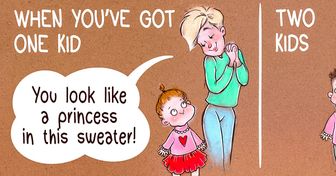An Artist Draws Comics About Family Life That Every Mom Can Relate To

Recognizing a narcissistic person can be easy since they usually give us the signs for this. But what happens if we suddenly start noticing these signs in our children? Could parents be the main people responsible for raising new generations of potential narcissists? According to a study, it’s in one’s upbringing that we can find the origin of a person’s narcissism.
That’s why Bright Side decided to dig a little deeper and give all parents a helping hand with these 8 parenting tips from psychologists that can help you avoid having to deal with a narcissistic child later on.
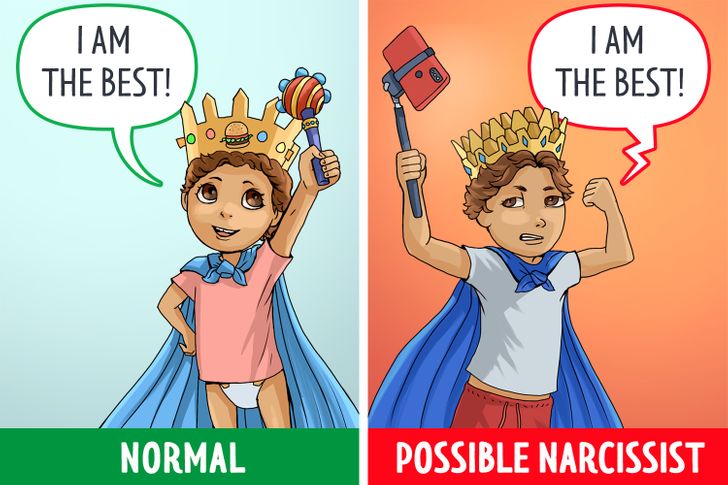
First of all, we should not confuse narcissism with a healthy dose of self-esteem. Basically, they differ in that a person with self-esteem will not always put themselves first, regardless of the needs and rights of others. That is why, as parents, we must help our children develop strong self-esteem.
You don’t have to worry if your 3-year-old has narcissistic behaviors, as at that age, they are still developing their personality and learning about everything around them. But if these behaviors continue or increase with age, it’s already a red flag, and these tips may be helpful.
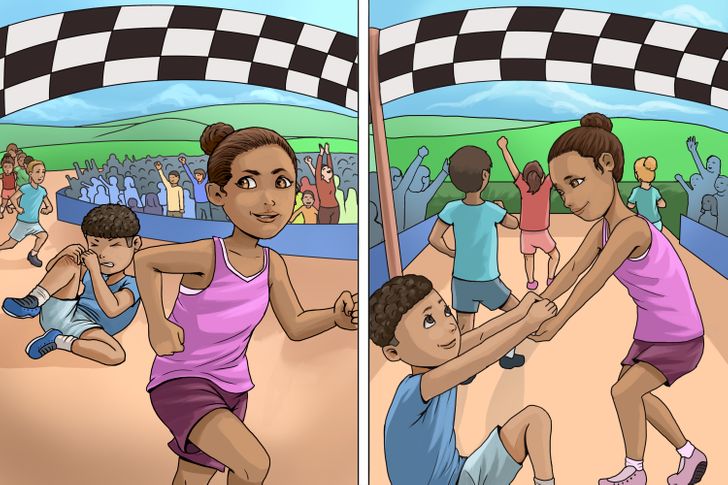
Narcissists care little about what others feel or think — they only are concerned about themselves and their own desires and feelings. That’s why it’s necessary for your child to understand and learn what empathy is. Understanding other people and really feeling compassion are very useful elements for their emotional and social development. Remember that you are their first role model, so you’ll have to set an example with your everyday actions.
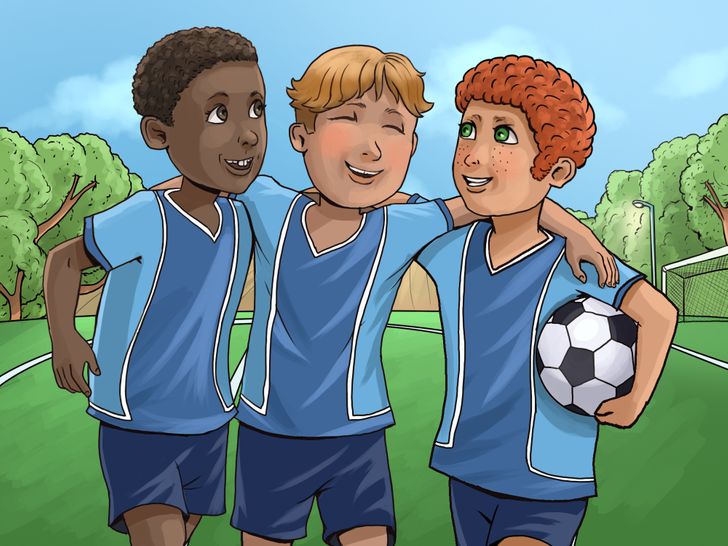
One does not often think that a hobby could be of any use in developing a child’s way of being. But helping them find something they’re passionate about, such as a sport or an artistic activity, for example, will allow them to get excited about something and people who are also involved in the same likes and hobbies.
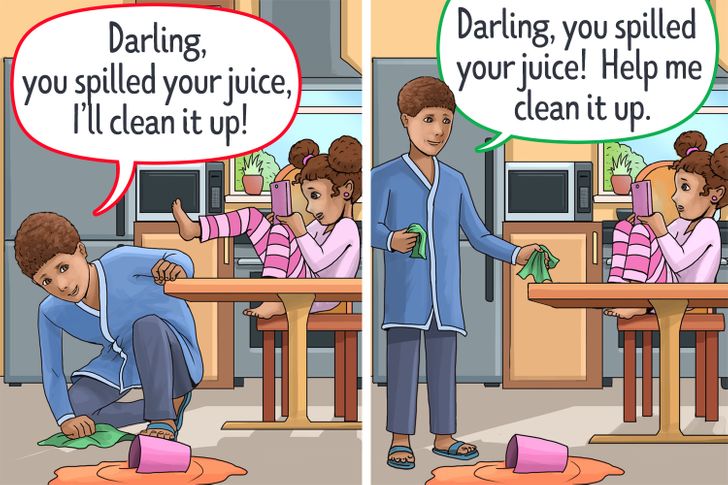
Narcissistic people don’t usually take responsibility for their actions and their consequences, especially if these are negative. That is why teaching your children from their own mistakes or bad behavior, explaining to them why what they did was wrong, can help children to take responsibility for their mistakes and mitigate this characteristic of narcissists.
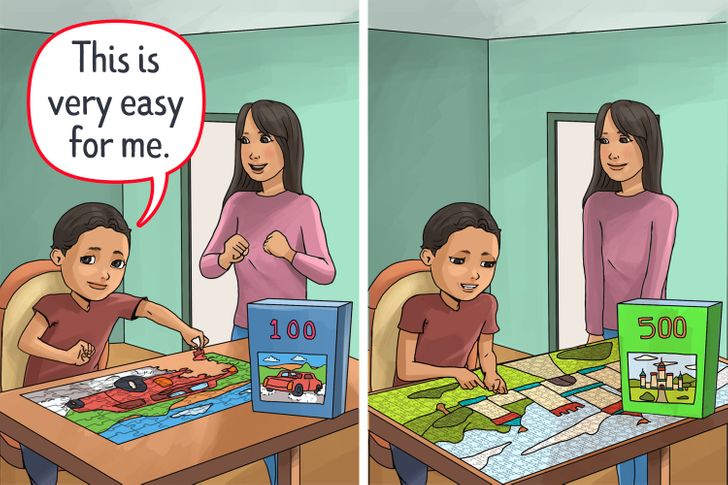
A narcissist often feels superior to others, and this may indeed be so, but it’s not enough for them to prove it, they need to be recognized for it. To avoid this type of behavior in children, it’s good to propose new challenges. In this way, they’ll know that they have limitations and that they don’t have all the answers all the time.

It’s normal for children to constantly seek approval and attention from their parents. But there is a big difference between telling a child all the time that they’re the prettiest and smartest in their class and telling them that they’re doing something right, that they’re worth a lot of effort or concern for other children. Praise is a great help in the development of a child’s self-esteem, but we must use it sparingly, as too much praise can be counterproductive.
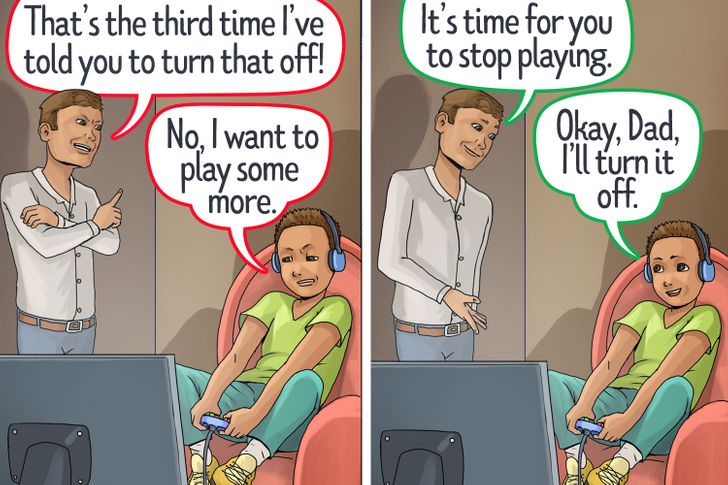
A narcissist will always want to do things their own way and get what they want. That’s why parents must know how to set limits without restricting their child’s freedom or opinions. For example, setting schedules for meals, breaks, and play gives the child a sense of stability and security. Limits set by parents help a child mature and understand that you can’t always do what you want, which will allow them to develop patience.
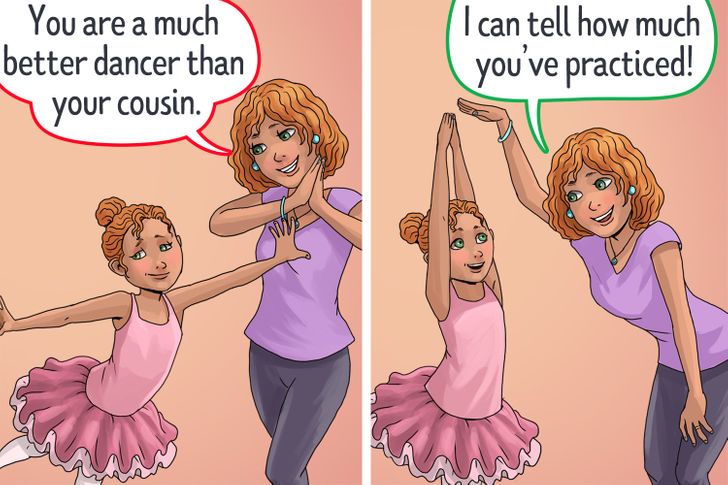
Narcissistic people need to feel better than others. Therein lies the importance of our children learning that their value does not depend on the successes or failures of the people around them, but rather, on their own efforts. That’s why we shouldn’t feed this type of behavior by comparing our children with each other or with friends and relatives.
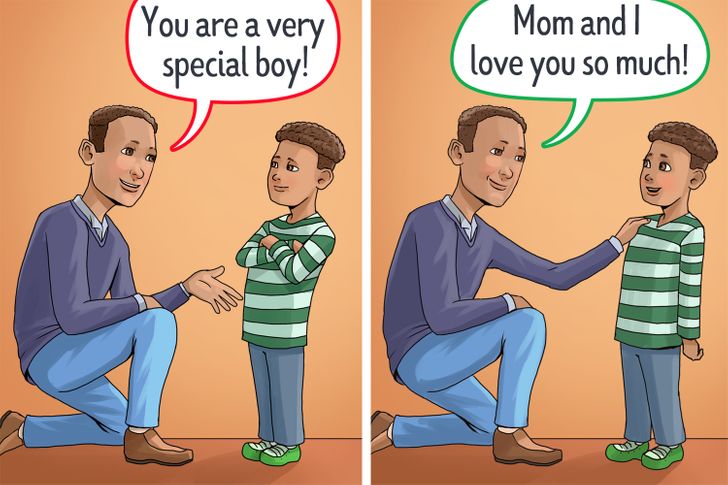
In order not to foster narcissistic attitudes in our children, it’s more important to tell them and make them feel loved without conditions than to tell them and make them believe that they are special children. In this way, you help them feel valued as people, thus generating a basis for good self-esteem instead of creating the illusion that they’re superior or better than others.
Raising a child to be a good person in the future is really challenging for anyone, but to what extent do you think it’s the parents’ responsibility if a person is narcissistic? Do you know someone like that?

